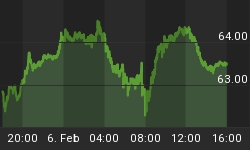Complete Failure of Abenomics
Abenomics is back in the spotlight tonight. Results show a complete failure on three fronts: retail sales are down, factory output is back in contraction, and the most humiliating of all, Japanese firms have outright rejected Prime Minister Shinzo Abe's plea for higher wages.
Retail Sales Decline, Factory Output Contracts
Please consider Japan output, retail sales slump, dampen recovery prospects.
Japan's factory output fell for the first time in three months in November and retail sales slumped, suggesting that a clear recovery in the world's third-largest economy will be delayed until early in 2016.
While manufacturers expect to increase output in coming months, the weak data casts doubt on the Bank of Japan's view that an expected pick-up in exports and consumption will help jump-start growth and accelerate inflation toward its 2 percent target.
Industrial output fell 1.0 percent in November from the previous month, more than a median market forecast for a 0.6 percent decline, data by the trade ministry showed on Monday.
Separate data showed that retail sales fell 1.0 percent in November from a year earlier, more than a median forecast for a 0.6 percent drop, as warm weather hurt sales of winter clothing.
Wary of soft growth, the government plans nearly $800 billion in record spending in the budget for the fiscal year that will begin on April 1.
The BOJ has signalled readiness to expand stimulus if risks threaten Japan's recovery prospects. The central bank fine-tuned its stimulus programme on Dec. 18 to ensure it can keep up or even accelerate its money-printing.
Fine-Tuning
Damn that weather. It's always too hot, too cold, or too perfect for retail sales.
The only possible conclusion is central banks need to fine-tune the weather to get predictable outcomes.
Not to worry, there's the tried-and-failed method of more government spending as a fallback mechanism.
Businesses Reject Abe's Plea to Hike Wages
As if weather-related fine-tuning was not problematic enough, the Japan business lobby head won't commit to higher wages
The head of an influential Japanese business lobby won't pass on the government's requests to its members to raise salaries next year, a worrying sign that real wages may not increase fast enough to boost consumption in the country.
"The government is hoping for higher wages, but the Keizai Doyukai, as an organization that corporate executives personally belong to, is not going to tell its members what to do," said Yoshimitsu Kobayashi, chairman of the Keizai Doyukai, which regularly participates in the government's corporate policy panels and is one of Japan's top three business lobbies.
"Companies that don't have money obviously won't raise wages."
Higher wages are crucial to policymakers' efforts to break a decades-long cycle of weak growth and deflation. Prime Minister Shinzo Abe has won modest wage gains from the largest firms, but this has been slow to filter through the economy.
Around 65 percent of people work at small and medium-sized enterprises, many of which are losing money and are therefore unlikely to raise salaries or spend extra money on training employees
More Fine Tuning Needed
What's with these damn corporations? Why do they insist on making a profit anyway? Clearly this misguided and very unpatriotic behavior must be fixed at all costs.
And I have just the solution. As part of the fine-tuning effort, all Abe needs to do is guarantee minimum corporate profits.
Should that fail, there's always the last resort of free helicopter-drop money for everyone. Lord knows how important it is to slay the deflation dragon once and for all.
Don't take my word for it. Instead, listen to Willem Buiter, Citibank's Chief Economist.
He knows precisely how damaging deflation is. For details, please see Helicopter Drop, What Else?















